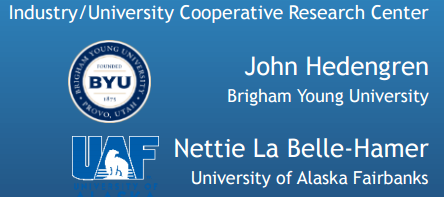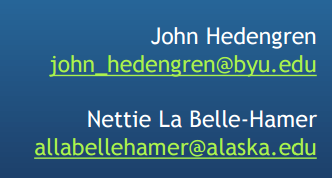Center for Arctic Sustainable Development (CASD)

Due to increased human activity in the Arctic including shipping, tourism, and resource development, impacts to the environment are expected. The number of ships passing through the Bering Strait has increased with sea-ice coverage decline, doubling over the past 4 years with more increase expected. Arctic offshore oil production is expected to soon include the U.S. on the Outer Continental Shelf among the other Arctic nations already drilling. Spills of oil, gas, and other petroleum products from this increase in human activity is of major concern, as is the lack of a unified response strategy to Arctic ocean emergencies and ocean traffic effects on Arctic animals. Simultaneously, research needs in the Arctic resource development are recognized and highlighted in numerous interagency reports, peer-reviewed journals, and industrial reports. The U.S. needs a source of unbiased research data and information focused on sustainable development in the Arctic. With a push towards development of Arctic offshore-oil resources in the United States (U.S.), Canada, and other Arctic nations, where a quarter of the world’s undiscovered oil- and gas-resources are located, prevention of and response to oil spills in Arctic-marine environments has emerged as a key global challenge. Environmentally-responsible offshore oil drilling is one of the most complex and challenging scientific- and technological-issues of the 21st century. Addressing sustainable development in the Arctic will necessarily address research topics relevant to Arctic oil production. Using a Center-based approach -- one that is inherently inter-disciplinary, collaborative, and unified in mission – this I/UCRC will provide the structural framework for developing and sustaining the type of transformational science and technology, education, and knowledge transfer collaborations necessary to address these complex challenges. The Center's mission is to bring the best available lines of expertise, partners, and technology to advance a new resource development science -- one that will guard against and mitigate the impact of oil spills associated with offshore drilling in the future. CASD seeks to protect the Arctic's fragile ecosystem by combining theory, practice, technology, natural science, and social ecological systems in new and previously transformative ways. CASD’s vision is to become the world leader in Arctic oil-spill prevention, detection, preparedness, response and, restoration research and education. Recognizing that full-predictive capability is beyond the reach of this Project, this I/UCRC will create a continuum of new knowledge that will reduce uncertainty in decision making and will improve resilience should a spill occur. The Center will be the hub for premier interdisciplinary research and education, made possible by meaningful collaboration among academia, industry, agencies, other northern communities, and their indigenous populations.

